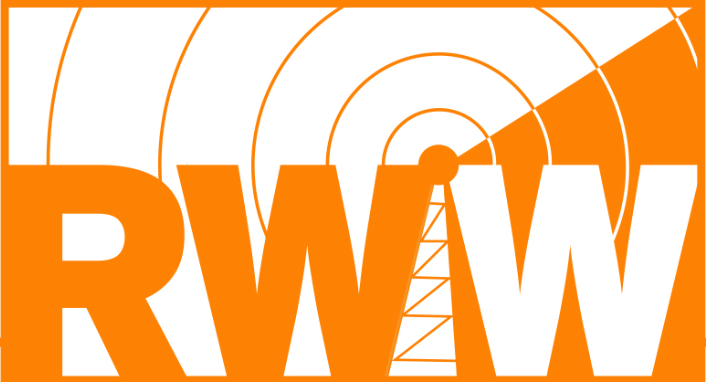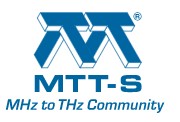Distinguished Microwave Lecturers (DMLs)
As every year, the newley elected class of Distinguished Microwave Lecturers (DMLs) will present in a special session on Monday.
Monday 08:00
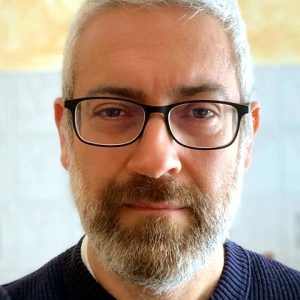
High-Frequency Doherty Power Amplifier: Challenges and Design Approaches
Vittorio Camarchia, Politecnico di Torino, Italy
Abstract: The Doherty power amplifier remains a leading solution for high efficiency at power back-off, yet its translation to C/Ku/Ka bands and mmWave magnifies practical limitations: reduced device gain, strong parasitics, transmission-line losses, and AM/PM introduced by load modulation. This talk reviews circuit-level and system-aware design approaches that enable robust Doherty operation at high frequency. Topics include impedance-inverter realization and loss mitigation, output/load compensation networks, bandwidth extension strategies, driver and bias considerations, and linearity under wideband modulated signals (EVM/ACPR/NPR). We discuss MMIC implementations in GaN and GaAs, highlighting device-technology trade-offs, packaging, and measurement methodologies. Practical guidelines and recent results illustrate how to balance efficiency, bandwidth, and linearity to meet modern communication requirements.
Speaker's Bio: Vittorio Camarchia is an Associate Professor at the Department of Electronics and Telecommunications, Politecnico di Torino, Italy. His research focuses on high-efficiency RF/microwave power amplifiers and transmitters for 5G/6G and satellite communications, with emphasis on load-modulated architectures (Doherty, Chireix/LMBA), broadband linearization, and GaN/GaAs MMIC design. He has authored and co-authored numerous journal and conference papers, holds patents, and has served as Associate Editor and reviewer for IEEE journals. He actively collaborates with industry and European space/telecom programs, leading projects on wideband, highly linear GaN PAs and digital Doherty techniques. He is Chair of IEEE MTT-S TC-23 (Wireless Communications) for 2025–2026 and a Distinguished Microwave Lecturer for 2026–2028.
Monday 08:33
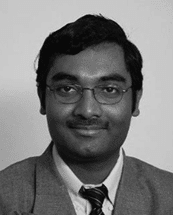
Challenges for building scalable quantum computers
Sudipto Chakraborty, IBM Research
Abstract: This talk will cover practical challenges for the development of integrated system designs for next generation quantum computing which includes a combination of integrated circuits, systems and microwave engineering. Starting from system level, it will detail the design considerations for non-multiplexed, semi-autonomous, transmon qubit state controllers (QSC) implemented in 14nm CMOS FinFET technology. The QSC includes an augmented general-purpose digital processor that supports waveform generation and phase rotation operations combined with a low power current-mode single sideband upconversion I/Q mixer-based RF arbitrary waveform generator (AWG). Implemented in 14nm CMOS FinFET technology, the QSC generates control signals in its target 4.5GHz to 5.5 GHz frequency range, achieving an SFDR > 50dB for a signal bandwidth of 500MHz. With the controller operating in the 4K stage of a cryostat and connected to a transmon qubit in the cryostat’s millikelvin stage, measured transmon T1 and T2 coherence times were 75.5μS and 73 μS, respectively, in each case comparable to results achieved using conventional room temperature controls. In further tests with transmons, a qubit-limited error rate of 7.76×10-4 per Clifford gate is achieved, again comparable to results achieved using room temperature controls. The QSC’s maximum RF output power is -18 dBm, and power dissipation per qubit under active control is 23mW. An improved, low-power design version that achieves half of this power will also be presented, including some clocking solutions for large arrays.
Speaker's Bio: Instruments till 2016 where he designed low power IC for >10 product families in automotive/wireless/medical/microcontrollers. Since 2017 he led the low power circuit design for next generation quantum computing applications in IBM research using nanometer CMOS. He has authored or co-authored >90 papers, two books and 95 US patents. He has served in the TPC including ISSCC, CICC, RFIC, IMS, and is an IBM master inventor. He serves as an associate editor of TCAS-I, TCAS-II, CASS magazine and distinguished lecturer in the IEEE MTT-S, CASS and SSCS.
Monday 09:06
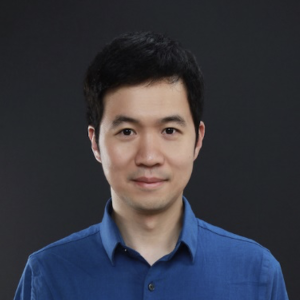
Microwave Biomedical Radar for Healthcare Applications
Changzhan Gu, Shanghai JiaoTong University
Abstract: Microwave biomedical radar has achieved significant advancements, enabling transformative healthcare applications specifically for home-based care. Unlike conventional contact-based instruments that can cause discomfort, this non-invasive technology is ideal for continuous monitoring. This presentation will first detail key hardware innovations—including radar miniaturization, and enhanced accuracy and sensitivity—that are critical for deploying portable devices in residential settings. It will then explore specialized RF processing and AI techniques for extracting medical-grade physiological data from radar signals. Finally, the talk will highlight the technology’s breakthrough healthcare applications, from specific clinical applications like post-operative monitoring to broader home-based management. This includes revolutionizing remote patient monitoring, elderly fall detection, and chronic disease tracking for proactive, comprehensive home care.
Speaker's Bio: Changzhan Gu (Senior Member, IEEE) received the B.S. and M.S. degrees from Zhejiang University, Hangzhou, China, in 2006 and 2008, respectively, the M.S. degree from the University of Florida, Gainesville, FL, USA, in 2010, and the Ph.D. degree from Texas Tech University, Lubbock, TX, USA, in 2013. Prior to returning to academia, he worked for several years in industry at Google and Marvell in the Bay Area, California. He is currently an Associate Professor with Shanghai Jiao Tong University, Shanghai, China. Dr. Gu is a TC Member of IEEE MTT28, the Secretary of the IEEE MTT-S Shanghai Chapter, and selected as the IEEE MTT-S Distinguished Microwave Lecturer (DML) for 2026-2028. He received the IEEE MTT-S Outstanding Young Engineer Award in 2023, the IEEE Sensors Council Early Career Technical Achievement Award in 2019, and the IEEE MTT-S Graduate Fellowship for Medical Applications in 2013. He served as the TPC Chair of the 2022 IEEE International Microwave Biomedical Conference (IMBioC) and has been a TPRC member of the IEEE International Microwave Symposium (IMS) since 2018. Dr. Gu is an Associate Editor for the IEEE Transactions on Microwave Theory and Techniques (T-MTT), the IEEE Journal of Electromagnetics, RF and Microwaves in Medicine and Biology (J-ERM), and the IET Microwave, Antennas & Propagation (MAP). His research interests include short-range microwave sensing technologies and their medical and human tracking applications.
Monday 10:10
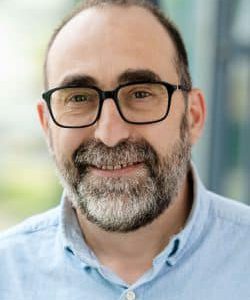
Energy-efficient transceivers for D-Band and SubTHz communications
José Luis González-Jiménez, CEA-LETI, Grenoble, France
Abstract: This lecture will address innovative transceiver architectures for radio links aiming at very high throughput (100+ Gbp) and low energy consumption operating at D-band and subTHz frequencies. In the first place, channel aggregation architectures will be presented in detail. These architectures allow cover a large band at RF without imposing containing bandwidth requirement at the lower frequency interfaces, by combining multiple BB channels into parallel up and down conversion lanes. The design of the most critical building blocks will be addressed, as well as the packaging and module integration with the antennas, with experimental results from fabricated prototypes. Next, innovative techniques for the generation of the multiple LO signals required by these channel aggregation architecture will be presented and discussing, including efficient calibration methods. Finally, high gain antenna architectures will be covered, with a focus on alternatives to phased arrays for D-band and subTHz frequencies based on reconfigurable metasurfaces and transmit arrays. Overall, this lecture will follow the thread of minimizing the energy consumption of each component of the radio transceiver, from the baseband interfaces up to the antenna system. The lecture will conclude with some applicative examples where the performances of the links will be compared with the requirements of some use cases such as back/front haul links and smart factory networks.
Speaker's Bio: José Luis González-Jiménez is a Fellow and Research Director at CEA-Leti. He received the Diploma degree in telecommunication engineering from Ramon Llull University, Barcelona, Spain, in 1992, the M.Sc. degree in Telecommunications Engineering and the Ph.D. degree (Hons.) in electronic engineering from the Universitat Politecnica de Catalunya (UPC), Barcelona, in 1994 and 1998, respectively. He attained the “Habilitation à Diriger des Recherches – HDR” degree from Grenoble University, Grenoble, France, in 2013. From January to July 1999, he worked as a Guest Researcher with the University of Arizona, Tucson, AZ, USA, where he collaborated with Motorola on the design of high-speed digital-to- analog converters. From September 2007 to August 2008, he was a Visiting Researcher with the STMicroelectronics/CEA-Leti joint Advanced Research Laboratory, Minatec, Grenoble, where he was engaged in research on the design of millimeter-wave oscillators and substrate noise coupling in millimeter-wave CMOS integrated circuits (ICs). Until 2011, he was a full-time Associate Professor with the Department of Electronic Engineering, Universitat Politecnica de Catalunya, Barcelona. From 2015 to 2019, he was the Deputy Head of the RFIC Design Laboratory, CEA-Leti, Grenoble. He is also an Invited Lecturer at the Phelma Engineering School, Grenoble-Alpes University. He has been leading and participating in several international research projects and contracts with companies. He is the author of two books, three book chapters, more than 40 international journal articles, and more than 120 conference papers. He holds 23 patents. His research interests include very large-scale integration circuits and systems, mixed-signal/RF, millimeter-wave and sub-THz ICs, silicon photonics, and signal and power integrity in SoC and RFICs. Dr. González-Jiménez was awarded a Fulbright Fellowship and regularly collaborates as a reviewer in journals, including IEEE Journal of Solid-State Circuits, IEEE Transactions of Circuits and Systems (I and II), IEEE Microwave and Wireless Components Letters, Electronics Letters, and IEEE Transactions on Microwave Theory and Techniques, and serves regularly for the technical program committee of several international conferences, including ISSCC, ESSERC, EuMW and IMS. From 2023 to 2025 he was the IEEE CAS society representative at the Steering Committee of the IEEE Future Networks Technical Community. He is a IEEE Senior Member and a EUMA Member.
Monday 10:55
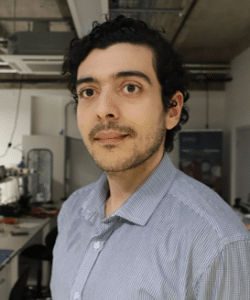
Making Microwaves Green: From Life Cycle Assesments to Chipless Sensing Solutions
Mahmoud Wagih, University of Glasgow
Abstract: Wireless microwave connectivity underpins almost all areas of modern digital society, from communications, sensing, to positions. However, the carbon emissions and e-waste generated from wireless microwave hardware needs to be tackled through innovative materials, design, and integration solutions, to build sustainable connected systems. This DML talk will cover the role of microwave sensing and connectivity in a sustainable and circular economy. First, the industry-standard methodology of Life Cycle Assessment (LCA) will be introduced for the first time, in the context of microwave hardware. The end-to-end impact of manufacturing and power consumption, and directions to make RFICs and PCBs more sustainable will be presented. Then, novel recycling and re-use solutions will be introduced for microwave circuits, showing how metals, substrates, and RFICs/MMICs, can be sustainably re-used. Finally, the opportunities for microwaves to enable new sustainable sensing applications in a chip-less way will be discussed. In particular, how novel materials which respond to almost any measurand, such as temperature, humidity, or gases, could be applied in practical chipless sensors, with low-cost and open-source multiplexed readouts. The talk will conclude with guidelines on how microwave hardware can be designed, recycled, and optimised for sustainability and performance.
Speaker's Bio: Mahmoud Wagih received his B.Eng. (Hons.) in September 2018, and his award-winning Ph.D. on rectenna design in April 2021, both in Electrical and Electronic Engineering from the University of Southampton. He is currently at the University of Glasgow leading the Green RF-Enabled Electronics Lab, having held a UKIC Fellowship from the Royal Academy of Engineering, and is the Founder of RX Watt Ltd. His interests broadly cover RF-enabled sustainable systems for energy harvesting, sensing, and wearable applications. He has published 130 journal and conference publications, across Nature Portfolio, Advanced, and IEEE Transactions journals, and 3 patents, and has been principal/co-investigator on over £15M research projects. Dr. Wagih is an IEEE Distinguished Microwave Lecturer (DML), and Speakers’ Bureau speaker and Vice Chair for MTT TC-26, RFID, IoT, and Wireless Sensors. He received 20+ awards including multiple IEEE Best Paper/Presentation (IMS, WPTC, PowerMEMSx2), the EurAAP Per-Simon Kildal Best PhD in Europe in Antennas and Propagation, 2 URSI Young Scientist Award, was listed in Forbes 30 Under 30 for Science & Healthcare, 2024, and most recently the Royal Academy of Engineering Sir George MacFarlane Medal as the UK’s Young Engineer of the Year. He has served on multiple TPCs, e.g. TPC Co-chair for IEEE SAS 2025, and member of IMS TPC. He is a Topic Editor for the IEEE Journal of Microwaves, and an Associate Editor for Royal Society Open Science.
